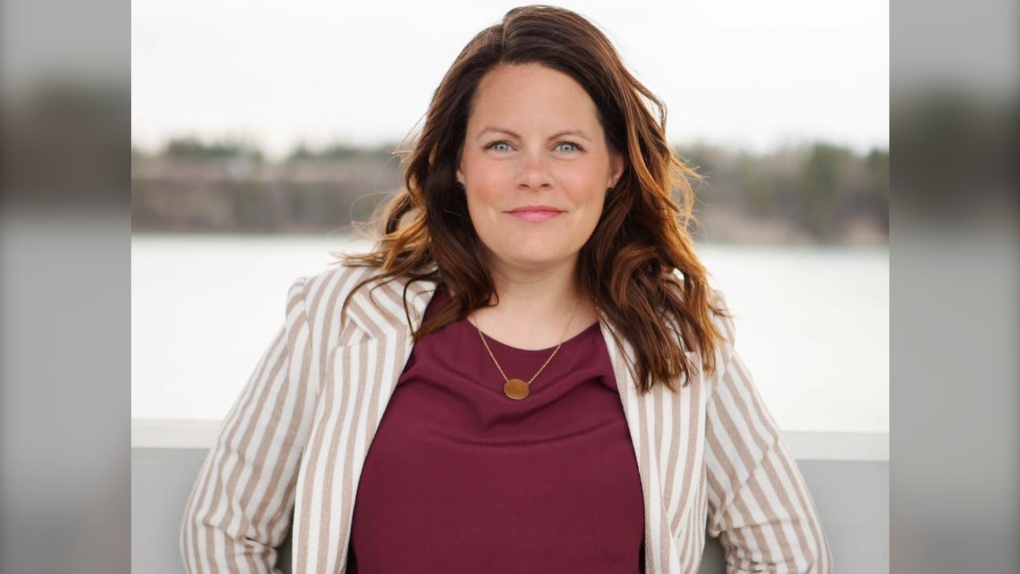Council reconsiders decision to reject recommendations on affordability crisis
Calgary city council has reconsidered its decision to vote against recommendations made by an expert panel to address the city’s housing affordability crisis.
Late Wednesday afternoon, the city issued a release amending its Tuesday decision to reject six main recommendations over concerns over zoning and clarity surrounding proposed solutions.
Tuesday, in a 7-8 vote, council decided to end the task force’s work without moving forward on any of their recommendations.
The 33 specific actions called upon the council to implement policies such as removing all minimum parking requirements in residential areas along with establishing financial incentive programs to drive the production of more secondary suites.
Following the defeat, Ward 11 Councillor Kourtney Penner who voted in favour of implementing the recommendations, called on her peers to reconsider their vote.
“I’m deeply disappointed that my colleagues got hung up on one or two of those recommendations, but essentially that 32 other plausible recommendations couldn’t go forward.
 Kourtney Penner was elected councillor of Ward 11 in the 2021 Calgary municipal election. (supplied)
Kourtney Penner was elected councillor of Ward 11 in the 2021 Calgary municipal election. (supplied)
“A lot of it was talking about issues, everything from legislation through the municipal government act for property taxes, for giving property taxes for non-profit housing providers to land use changes and how we can explore that difference. This vote wasn’t on land use.”
On Wednesday, a motion was put forward by Councillor Richard Pootmans agreeing that Tuesday's vote doesn't count anymore and will be revisited.
Council also voted for city administration to identify and implement the housing and affordability task force's recommendations it sees fit into its corporate housing strategy for a presentation that will be made in September.
That will allow for some public consultation in the fall and for council to once again look the plan over.
FEDS CRITICIZE ORIGINAL VOTE
Others in the federal politics circle also criticized the council for voting against the recommendations.
Michelle Rempel-Garner, Conservative MP for Calgary Nose-Hill , was notably frustrated by the rejection of recommendations, noting that current projections show Canada needs to build millions of homes by 2030 to address affordability.
“Every leader at every level of government must make housing a priority, and every citizen must understand we cannot address broader social problems without addressing housing,” she said.
“I call on the federal governments to stop rewarding councils that vote in favour of NIMBYism, including Calgary City Council. And I call upon colleagues on that council who I share constituents with to buck up and be actual leaders, and show our communities what courage and leadership looks like.
COUNCILLOR QUESTIONS 'ALL OR NOTHING' VOTE
Ward 7 Councillor Terry Wong was one of eight councillors to vote against the recommendations put forth by the expert task force on affordable housing.
He insisted that he wasn't against affordable housing measures whatsoever and called upon Mayor Jyoti Gondek to call four recommendations surrounding the motion separately.
 Ward 7 Councillor Terry Wong
Ward 7 Councillor Terry Wong
This would have allowed councillors to receive the report without directing city administration to begin the work. Gondek however declined that request and made it a single all-or-nothing vote.
The original motion ultimately failed on an 8-7 split with councillors Chabot, Sharp, Mclean, Pootmans, Wyness, Wong, Demong and Chu opposed.
“We're not against the recommendations of the task force. What we're looking for is greater clarity in the context and privatization of funding, so that we could say, implementation is a great way to approach It.,” Wong said.
Wong noted that an action many disagreed with was a recommendation to make R-CG zoning the “base zoning” in all residential areas. This would have allowed for the construction of row houses, townhouses, duplexes, semi-detached and cottage house clusters in more areas.
“Currently, when somebody wants to rezone, they have to come to a public hearing process. In the future, if they apply for rezoning, then there is no public hearing process,” he said.
“And as such, how do we get people's voices from the community's concerns in place so that we are not allowing use or long development that's inappropriate.”
Wong added that he had also heard from the city’s real estate group that there are 24 sites with the potential for affordable housing.
“But you know, once again, is that enough? There's other surplus lands out there, but a lot of those surplus lands are not purposed for affordable housing, they're not shovel ready. They are used for other uses. We need to understand the details for real estate whether or not we can make these things happen right away.”
ONE IN FIVE CALGARIANS IN NEED OF AFFORDABLE HOUSING
Maya Kambeitz, the CEO of Norfolk Housing was a panel member of the task force on affordability and was naturally disappointed that her team’s recommendations were not accepted.
She pointed to data from the task force that found one in five Calgarians are in need of affordable housing and that people earning less than $87,000 per year have affordable access to only 40 per cent of the city’s housing stock.
“We were asked to, to be bold, and to be uninhibited, and really, you know, think about the, the future of the city, and what we wanted to achieve and the outcomes that we needed to achieve to make sure that the city is inclusive for all,” Kambeitz said.
“This is really also a big issue for the city from an economics perspective and, you know, if we're going to continue to retain and attract talent, we need places for people to live.”
CALGARY & DISTRICT LABOUR COUNCIL CRITICAL OF REJECTION VOTE
Alexander Shevalier, president of the Calgary & District Labour council was critical of the council's original vote to reject the task force’s recommendations.
In a statement he criticized the councillors who voted against the recommendation for not offering additional alternatives. He says Calgary cannot access Federal housing funding until we pass an affordable housing strategy.
“It’s a bad deal for Calgarians. We’ve socialized the costs of an arena and are doing nothing to help the most vulnerable Calgarians. The contrast in priorities is unflattering,” said Shevalier.
“I’d like to thank the Mayor and the Councillors who voted for the strategy. This is one of the most cruel votes I've seen at city hall, and those who voted against it should be ashamed.”
'MISSED OPPORTUNITY': U OF C STUDENTS’ UNION
The University of Calgary Students’ Union noted that a handful of its students have resorted to temporarily living in their vehicles as they could not find housing last year.
The group says council’s refusal to take action will compound an already difficult housing supply and housing market, especially as student’s return to Calgary for their studies in September.
“There’s no other way to say it: Eight members of city council have made a bad situation worse. Students are at a breaking point and have been left behind by these members of Council,” said student union vice-president Mateusz Salmassi.
“Let’s be clear about what those eight members of council voted against, they voted against 1,000 additional homes and 3,000 affordable housing units added per year above the normal number of homes. They voted against enabling secondary and backyard suites to add to housing supply. These are basic measures that Calgarians support.”
Downtown Calgary also weighed in on the controversy on social media, saying "the unintended consequences of council's rejection of the Housing and Affordability Task Force Recommendations will slow, and potentially halt, economic recovery in our downtown. We look to council to provide leadership and take immediate action to do the right thing."
CTVNews.ca Top Stories

Hong Kong police issue arrest warrants and bounties for six activists including two Canadians
Hong Kong police on Tuesday announced a fresh round of arrest warrants for six activists based overseas, with bounties set at $1 million Hong Kong dollars for information leading to their arrests.
What is flagpoling? A new ban on the practice is starting to take effect
Immigration measures announced as part of Canada's border response to president-elect Donald Trump's 25 per cent tariff threat are starting to be implemented, beginning with a ban on what's known as 'flagpoling.'
U.S. president-elect's son shares post on X of Donald Trump buying Canada on Amazon
U.S. president-elect Donald Trump and those in his corner continue to send out strong messages about Canada.
Read Trudeau's Christmas message
Prime Minister Justin Trudeau issued his Christmas message on Tuesday. Here is his message in full.
Heavy travel day off to a rough start after American Airlines briefly grounds all flights
American Airlines briefly grounded flights nationwide Tuesday due to a technical problem just as the Christmas travel season kicked into overdrive and winter weather threatened more potential problems for those planning to fly or drive.
Economists say more room to fall as Canadian dollar continues downward trend
Experts say the next few months are going to be rough for the Canadian dollar as it appears set to continue its downward trend.
How much is too much alcohol over the holidays? A doctor explains
The holidays are here, as are the parties, happy hours and other get-togethers that often offer abundant mixed drinks, beer and wine.
Quebec fugitive gunned down leaving gym in Mexican resort town
RCMP are confirming that a fugitive, Mathieu Belanger, wanted by Quebec provincial police has died in Mexico, in what local media are calling a murder.
Justin Baldoni's 'Man Enough' podcast co-host Liz Plank announces her departure
Justin Baldoni's 'Man Enough' podcast co-host Liz Plank announced she's stepping away from the show after actress Blake Lively accused the actor and director of sexual harassment and a smear campaign in a civil rights complaint last week.
































